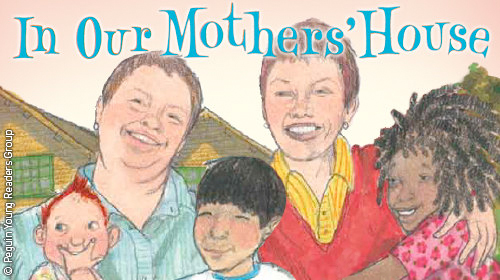Banned Books Week 2013: Books about LGBT Families Remain Targets of Censorship


2013 has been a landmark year for lesbian, gay, bisexual, and transgender families. In June the Supreme Court struck down the discriminatory "Defense of Marriage Act," and left in place a lower court decision restoring the freedom to marry for same-sex couples in California. At least 13 states and the District of Columbia now recognize the freedom to marry for same-sex couples, and that number will hopefully grow even larger before the year is through.
But despite these breakthroughs, books about LGBT people and their families remain one of the biggest targets of censorship in school classrooms and libraries. Each year, the American Library Association compiles a that have been the most frequent targets of censorship in classrooms and libraries, and almost every year one of the books on that list is And Tango Makes Three, a children's book about two male penguins that find an abandoned egg and raise a penguin chick together. Another frequent target of censorship is The Family Book, which as part of a survey of many different types of families includes a single page stating "some families have two moms and two dads." And just this past year, the ACLU and the ACLU of Utah had to take a school district in Utah to court to overturn the school's decision to pull a book about a family with two moms, , from the school library shelves. The book had originally been yanked from the shelves because a group of parents complained that it "normalized a lifestyle that we don't agree with."
This anti-LGBT censorship extends into cyberspace. A few years ago, the ACLU launched a national "Don't Filter Me" campaign to challenge school web-filtering software that blocked access to non-sexual websites about LGBT people and their families with allowing free access to comparable websites that attacked LGBT people for lacking family values. We won a court victory holding that this type of viewpoint-based censorship is unconstitutional, but as recently as this past spring we had to threaten legal action against another school district whose filtering software was configured to block access to websites such as Freedom to Marry by labeling them as "sexuality."
For gay people and their families this type of censorship is not just an abstract philosophical concern. The fact of the matter is that children with same-sex parents attend schools across the country, and blocking websites or removing books from the shelves won't change that. It only serves to stigmatize these students and their families as something dirty or shameful. Libraries should reflect the diversity of all kinds of ideas -- and all kinds of families.
Learn more about banned books and other civil liberty issues: Sign up for breaking news alerts, , and .


